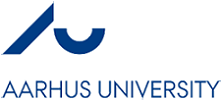Geophysics

Winter intake start date
2026-02-01
Winter intake deadline
2024-10-15
Introduction
The master's degree programme in geophysics is for those of you who are interested in the Earth's climate system, water resources, geothermal energy and other development of sustainable solutions to the resource needs of modern society (e.g. clean drinking water and sustainable energy and minerals). It is for those of you who would like to be skilled at working with computer models based on data collected in the field, such as electrical properties, sound data from soil layers, chemical variations and climate data.
Geophysics is based on mathematical and physical theory combined with practical experiments and studies. You will work with geophysical measurements, geological observations and advanced computer models to solve a wide range of geoscientific questions posed by modern society, such as where to find groundwater, sand and gravel, optimum geothermal conditions for heat extraction, etc.
The master's degree programme in geophysics is research-based and has a high degree of flexibility that makes it possible to shape your education based on your own interests. We offer the following four specialisations: water, climate, energy and deep soil systems.
Read more about the specialisations.
The master's degree programme in geophysics is closely related to the Master's degree programme in Geology, and the two programmes have many joint courses. Geophysics differs from geology in that it is more mathematically oriented and focuses on computer modelling. Geophysical methods are suitable for reconstructing the subsurface in models based on geophysical measurements. These models are subsequently tested by geologists, who make drillings and examine the material retrieved from the subsurface.
Students work closely with technical staff and with some of the best Danish and international researchers in the field. Teamwork is promoted to provide a forum for group research and discussion as well as opportunities to collaborate with private companies for research.
The thesis, which is heavily weighted, is a chance for students to tailor their degree to their own personal and career interests while benefiting from close collaboration with fellow students and faculty members.
Career
With a Master’s degree programme in geophysics, you can work with advisory engineering companies and in state and municipal institutions, working with for example groundwater research, environmental assessments, clean drinking water and the restoration of watercourses. You can also work for companies that work with alternative energy sources such as wind and water energy as well as geothermia, and you have the opportunity to work with research in the form of a PhD degree programme.
Na studia magisterskie mogą kandydować wszyscy, którzy ukończyli studia licencjackie lub inżynierskie (studia I stopnia), studia magisterskie lub studiują na ostatnim roku studiów I-stopnia. Studia, które planujesz powinny mieć zbliżony profil do tych obecnych lub ukończonych, ponieważ w procesie rekrutacji kluczowa jest ich zgodność programowa.
Wykaz punktów ECTS – osoby, które są jeszcze w trakcie studiów, muszą załączyć wypis punktów ECTS, w którym będzie wykazane, jakie przedmioty były realizowane na studiach oraz ile punktów za nie otrzymano.
Dyplom ukończenia studiów licencjackich lub inżynierskich – jeśli jesteś absolwentem wyższej uczelni, nie potrzebujesz wypisu, wystarczy załączyć dyplom ukończenia studiów wraz z suplementem (w języku angielskim lub oryginał z tłumaczeniem)
Course description - należy przygotować dokument, zbierający cały sylabus ze studiów licencjackich. Takie sylabusy najczęściej są do pobrania na stronie uniwersytetu. Należy je przetłumaczyć na język angielski (można samodzielnie) i złączyć w jeden dokument. Warto też zapytać w dziekanacie uczelni, czy nie dysponują wersją angielską.
Oficjalna skala oceniania Twojej uczelni - możesz dostać taki dokument w dziekanacie Twojej uczelni lub skonstruować samodzielnie. W obu przypadkach dokument powinien zawierać pieczątkę dziekanatu.
Spełnienie wymagań w zakresie języka angielskiego można udokumentować w jeden z następujących sposobów:
IELTS – 6.5
TOEFL – 83 (Aarhus University TOEFL kod - 8935)
Uwaga: wymagania językowe mogą ulec zmianie. Przed wysłaniem aplikacji upewnij się jakie są wymagania językowe na konkretny kierunek bezpośrednio na stronie uczelni.
W przypadku zdawania certyfikatu IELTs upewnij się, czy uczelnia oprócz wymagań oceny końcowej nie ma również wymagań odnośnie ocen cząstkowych.
You can be admitted to the master's programme if the university assesses that your education has a level, scope, and content that corresponds to the academic requirements specified below.
| Subject area | Number of ECTS |
| Subject components within geophysics and physics | 60 |
| Fundamental subject components within geology, programming, mathematics (calculus, Fourier analysis, linear algebra), chemistry, probabilty theory and statistics | 30 |
10 ECTS broadly distributed within each of the following topical areas:
| 10 |
| Total | 100 |
